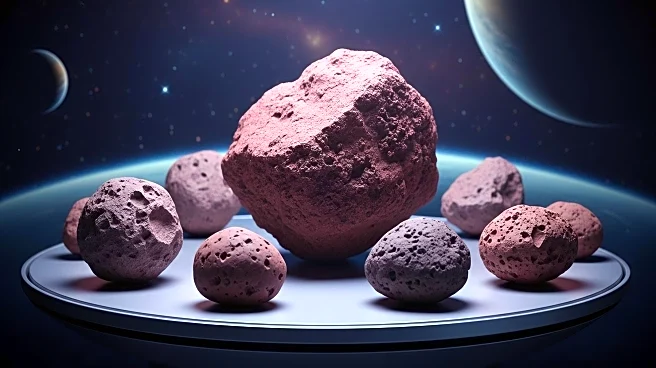What's Happening?
NASA's Perseverance rover has collected rock samples from Mars' Jezero Crater that may indicate ancient life. The samples, named 'Sapphire Canyon,' show colorful spots that could be remnants of microbial activity. The minerals vivianite and greigite, found in the samples, are associated with decaying organic matter on Earth. While the findings are promising, more data is needed to confirm the presence of life. The discovery challenges previous assumptions about Mars' habitability timeline, suggesting the planet may have been habitable for a longer period.
Why It's Important?
The discovery of potential biosignatures in Martian rocks suggests that Mars may have supported life, impacting our understanding of life's existence beyond Earth. The presence of minerals associated with microbial activity could indicate that Mars had conditions suitable for life, challenging previous assumptions about the planet's habitability timeline. The findings contribute to the ongoing search for life on Mars and the broader question of whether we are alone in the universe.
What's Next?
NASA plans to bring the samples back to Earth for further analysis, potentially through a future crewed mission. The scientific community will continue to explore both biological and abiotic processes to understand the conditions under which these features were formed. The findings will contribute to NASA's Mars Exploration Program and the agency's Moon to Mars exploration approach.









